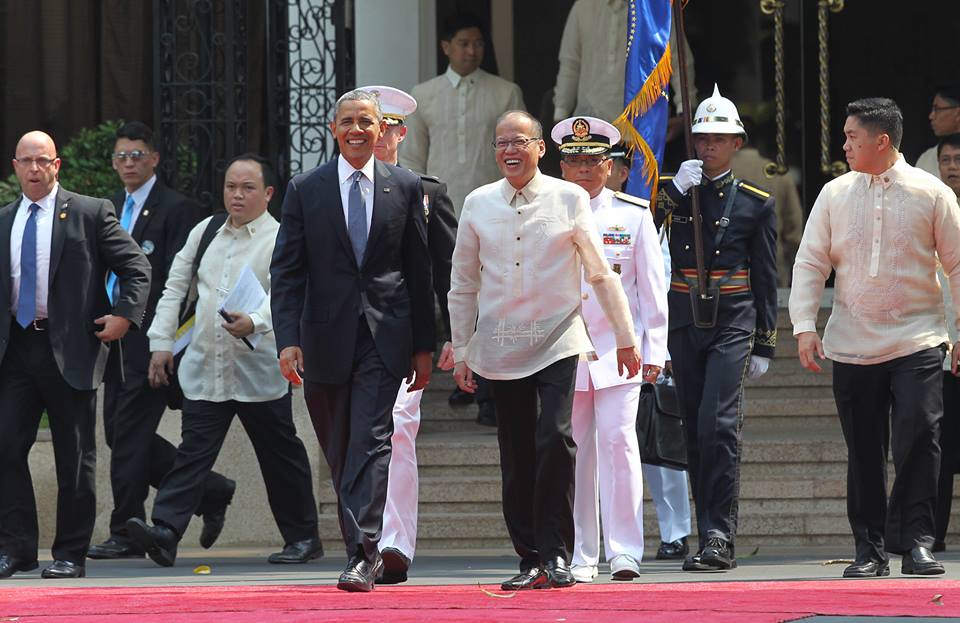
MANILA, Philippines – President Barack Obama ended a four-country swing through Asia and headed for home Tuesday, still confronting the challenge of how to deal with Russia’s threatening moves toward Ukraine. The issue overshadowed an Obama tour that was meant to reassure anxious allies in the orbit of a rising China that the U.S. will always be there to defend them.
Before getting on Air Force One for the flight to Washington, Obama rallied U.S. and Philippine troops at Fort Bonifacio, just outside Manila. In brief remarks inside a sweltering gymnasium, Obama hailed the co-operation both sides showed during some of the storied battles of World War II. He also paid his respects at the Manila American Cemetery, where row upon row of white crosses mark the final resting places of more than 17,000 military personnel from that war, mostly U.S. but including nearly 600 Filipinos.
Obama won’t be returning to the U.S. with a coveted free-trade deal with countries in the region, but he won’t be stepping off the airplane empty-handed.
Just before Obama arrived in the Philippine capital, the two countries signed a 10-year agreement to give the U.S. military greater access to Philippine bases. Obama said the arrangement will help promote peace and stability in a region unsettled by China’s claims on disputed territories. Many of the details remain to be worked out.
U.S. negotiators also claimed a breakthrough in negotiations over a 12-nation trade agreement known as the Trans-Pacific Partnership, which is a cornerstone of Obama’s rebalancing of U.S. foreign policy toward the booming economies in Asia. Japanese officials were more restrained, saying there was progress but not a basic agreement.
At each stop in the capitals of Japan, South Korea, Malaysia and the Philippines, Obama publicly reassured the key allies that the U.S. will uphold its commitments to defend them, including in their land and sea disputes with China. At the same time, he stressed that his goal was not to counter or contain China.
Obama could not avoid the pro-Russia insurgency in Ukraine’s volatile east, a tense situation that overshadowed the eight-day trip.
After hinting at it for days, the White House on Monday levied new sanctions on seven Russian officials and 17 companies with ties to President Vladimir Putin’s inner circle. The U.S. also revoked licenses for some high-tech items that could aid the Russian military.
Obama said the move wasn’t designed to target Putin personally but rather to “change his calculus” by getting him to back down, pull back tens of thousands of Russian troops from Ukraine’s eastern border and encourage pro-Russia separatists to lay down their weapons.
Obama’s third foreign trip of the year covered more than 21,000 miles.